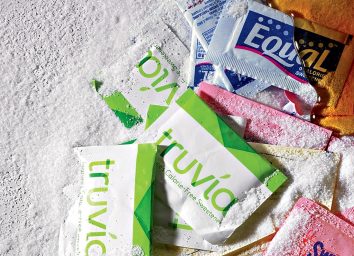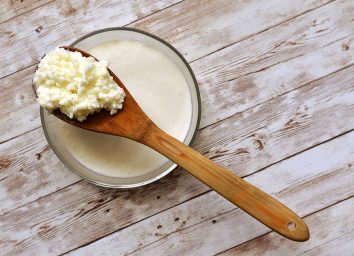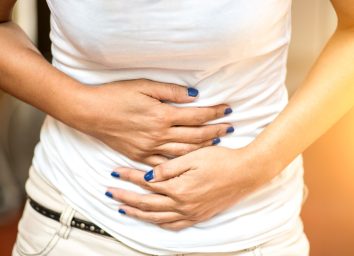10 Reasons You’re Constantly Bloated, According to a Dietitian
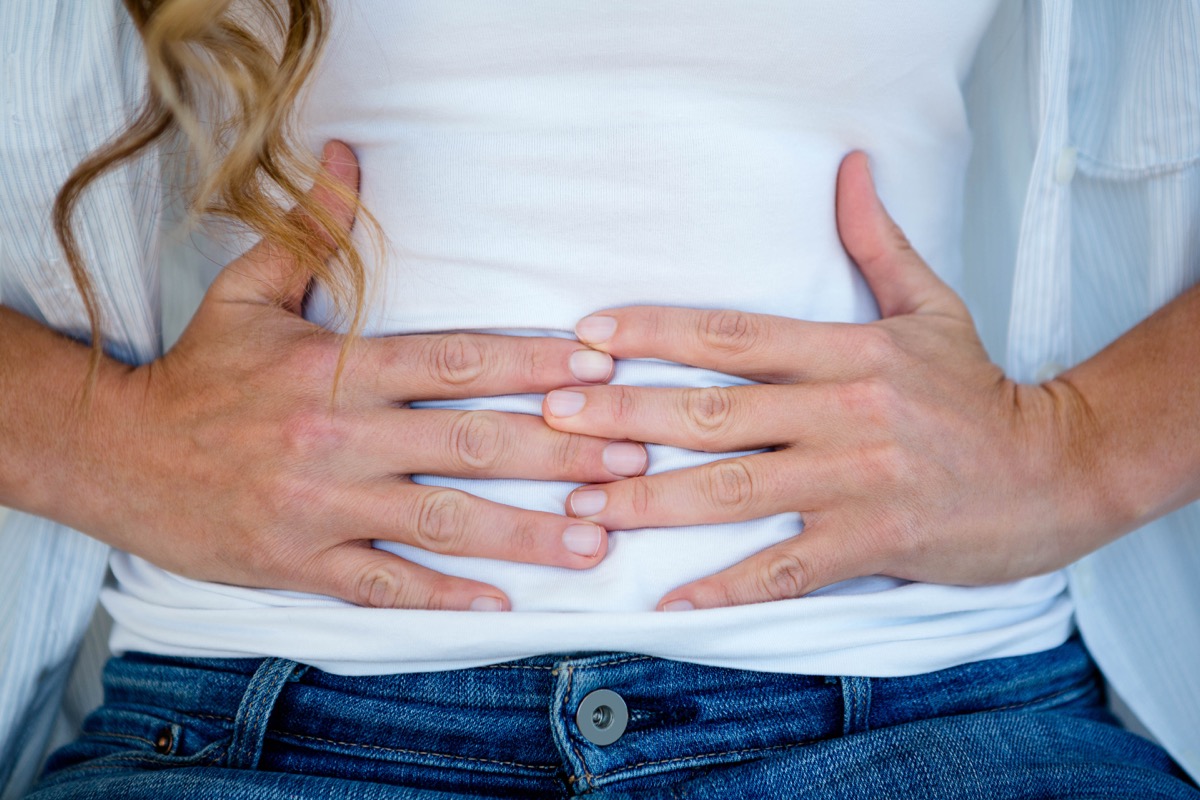
That dreaded uncomfortable I-wish-I-had-elastic-pants-on-right-now feeling that creeps in after a large meal is one we have all experienced. But do you notice you suffer from bloating a little too often?
Your belly bloat could be as a result of harmless habits, but it may also be a symptom of an underlying medical issue. Read on to find out what causes bloating, why you may be bloated, and what you can do about it. And to work on nourishing your belly in more ways then one, you need to know What Happens to Your Body When You Drink a Smoothie Every Day.
You ate too much, too fast.

Think about your noon-time lunch routine at the office. Do you notice that you’re checking emails or taking business calls mid-bite? Intuitive Eating expert Evelyn Tribole, MS, RD, notes that mindless eaters not only miss out on a joyful eating experience, but are actually prone to eating too much. In fact, a study that divided subjects into two groups revealed the distracted eating group was prone to eating larger portions at a faster pace without sensing feelings of satiety. Bloating can be all-too-commonly a result of overeating, and while this doesn’t necessarily cause harm, it can over time lead to unwanted weight gain. One trick to prevent this is to use a hunger scale. Mid-way through a meal, simply stop to check in with yourself to ask if you are feeling full or have room to continue eating.
STAY INFORMED: Sign up for our newsletter to get the latest food news delivered straight to your inbox.
You season your food with salt.
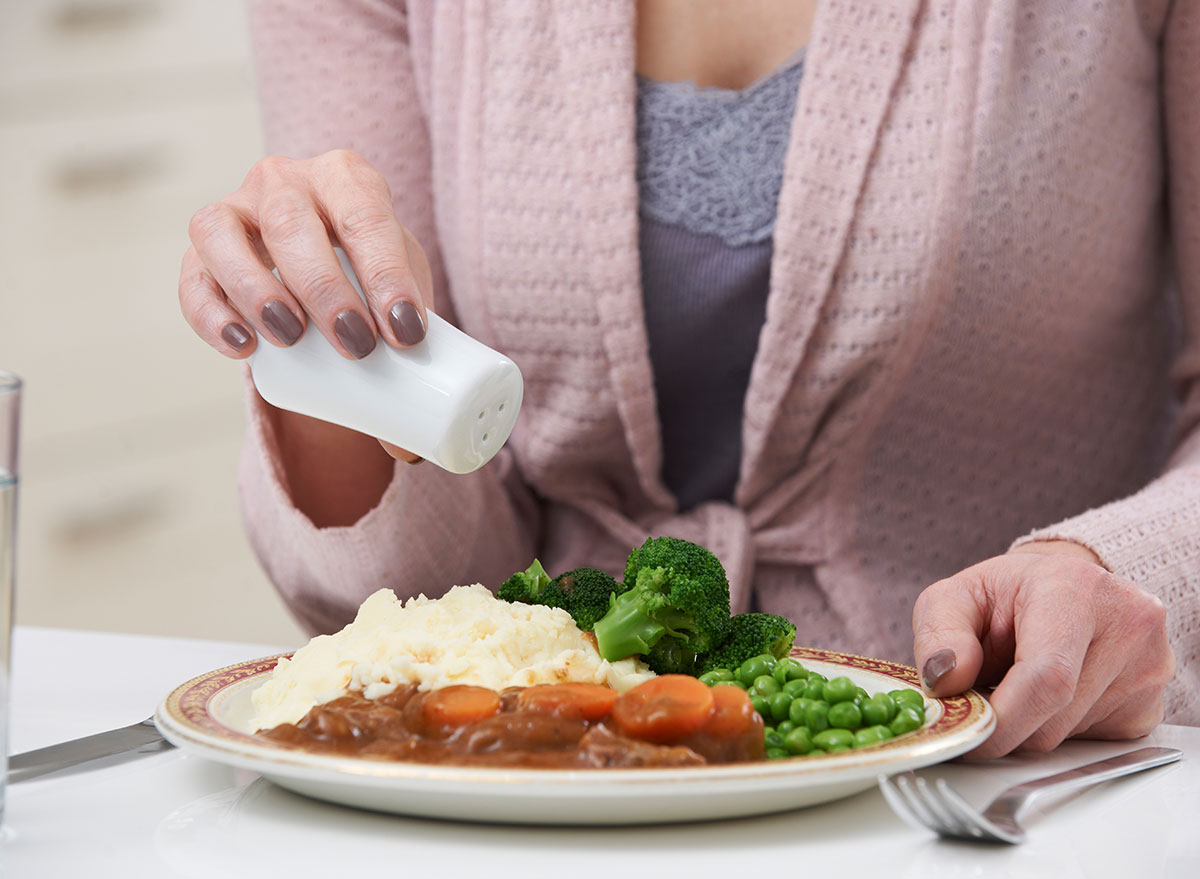
Salt accounts for 90 percent of the sodium consumed in the United States, and according to the CDC, the majority of adults exceed the recommendation for daily sodium intake by 140 percent. Too much salt, either added to meals for flavor or from pre-packaged processed foods, can cause the body to retain water and therefore cause bloating. Though in the short term this is generally harmless and can be ameliorated with adequate hydration, this should not be a habit for life. Excess sodium intake over time can raise blood pressure and increase the risk of hypertension and stroke. Beware of the 25 Foods High in Sodium You Should Watch Out For.
You have celiac disease.
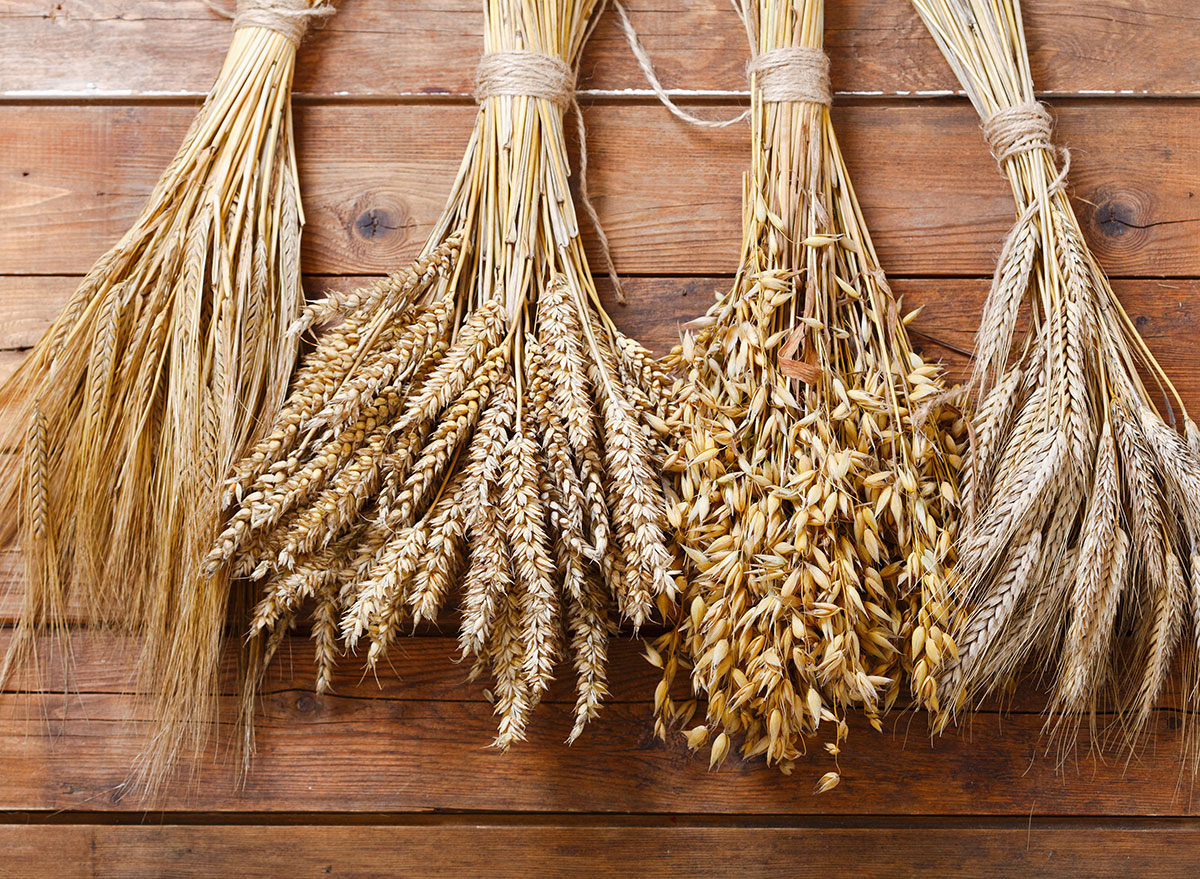
Celiac disease is a serious autoimmune disorder which is characterized by inflammation to the small intestine in the presence of gluten, a naturally occurring protein found in wheat, barley, and rye products. In addition to feelings of nausea, fatigue, and weight loss, severe bloating is often experienced by those with the condition. If any of these symptoms ring a bell to you, consider asking your primary physician about the possibility of being screened. If the blood test comes back positive, they likely will want to perform more procedures and schedule you to see a dietitian for a gluten-free diet education.
Unlike many conditions, celiac disease is one which medicine gives no cure and diet is the only path to a symptom- and bloat-free lifestyle. Your problem may not even be as serious as celiac disease; it could also be gluten intolerance/sensitivity, so make sure to read up on the 9 Warning Signs You’re Actually Gluten Intolerant.
You are sensitive to FODMAPs.
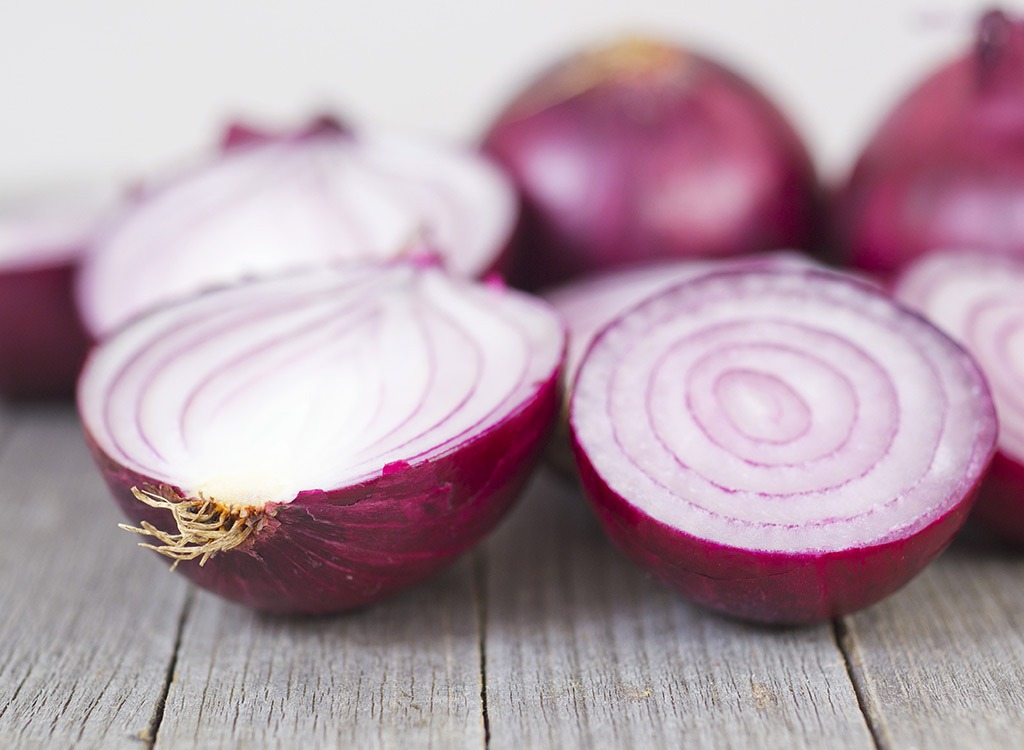
If belly-busting bloat is something you feel directly after eating every meal, you could have an underlying diagnosis of Irritable Bowel Syndrome (IBS), a condition that occurs in 10-15 percent of the worldwide population. If a GI physician confirms this diagnosis, they will suggest you visit with a dietitian to discuss the Low FODMAP diet, which is designed to eliminate a group of short-chain sugars that pass through the gut undigested to ferment in the colon.
Every individual is unique, and one person may tolerate a type of sugar another might not, but generally, foods like onions, garlic, milk, apples, and sugar-free gums give the most trouble because of their chemical structure. Unlike celiac disease, there is no structural damage associated with this pain and bloating, but for optimal comfort, a diet and lifestyle change may still be justified.
You are actually constipated.
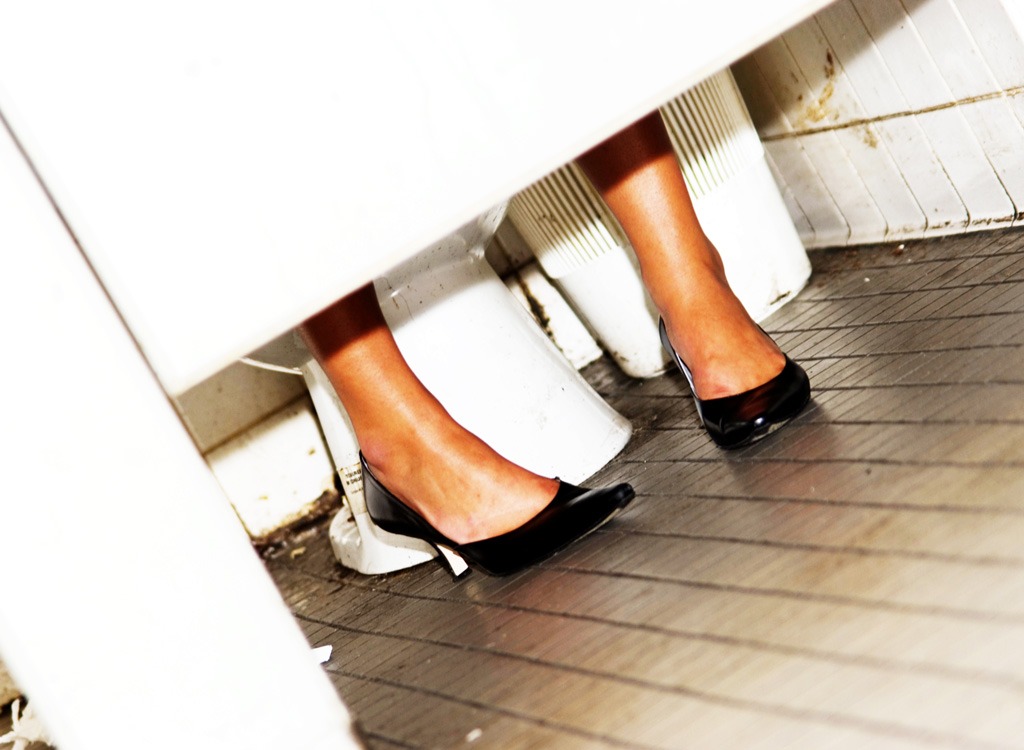
Two surefire daily checks to better maintain your general wellness is to keep tabs on the color of your urine upon waking and to pay attention to your daily bowel habits. If you’ve been feeling unrelenting bloat, you’re more than likely just constipated, as this is one of the most common gastrointestinal problems in the United States, according to the National Institute of Diabetes and Digestive Kidney Diseases. Getting down to the bottom—no pun intended—of a solution for your constipation is luckily simple and involves a few key lifestyle changes. Being consistent with increasing your daily fluid intake, eating more fibrous foods (seedy fruits and vegetables and whole, minimally processed grains), and getting more exercise almost always provide relief, but if you don’t notice a change, talk to your doctor about possible next steps.
You are lactose intolerant.
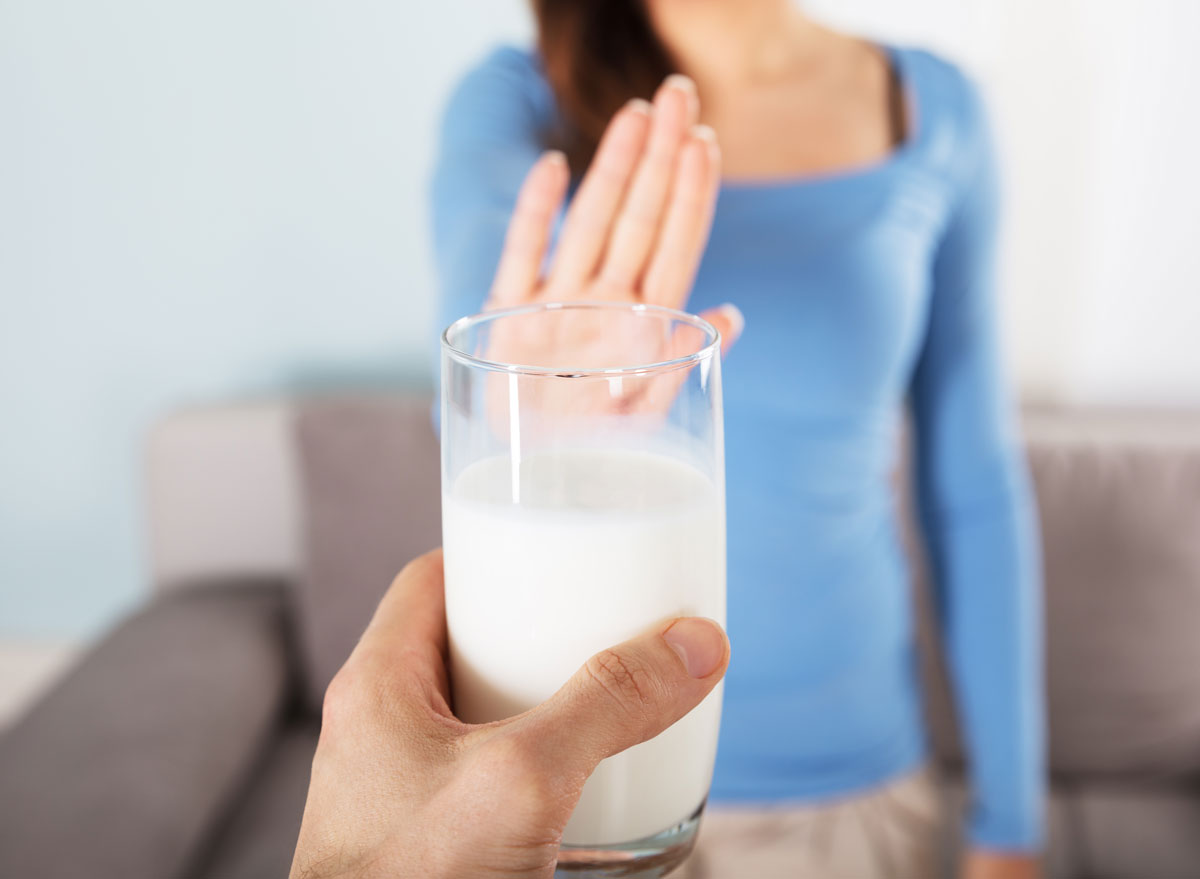
According to the National Institute of Health, over half of the human population has lactose intolerance or the inability to digest the natural sugar found in milk due to a genetic mutation. This means consumption of dairy foods like cow’s milk, ice cream, and others can cause immediate trips to the bathroom and bloating for certain people. If your doctor diagnoses you with lactose intolerance, don’t worry—you can still easily enjoy the foods you love. Lactose-free milk, lactase enzymes, or dairy-free substitutes are all easy workarounds, like these 12 Lactose-Free Yogurts You’ll Love.
You ate a gas-producing food.
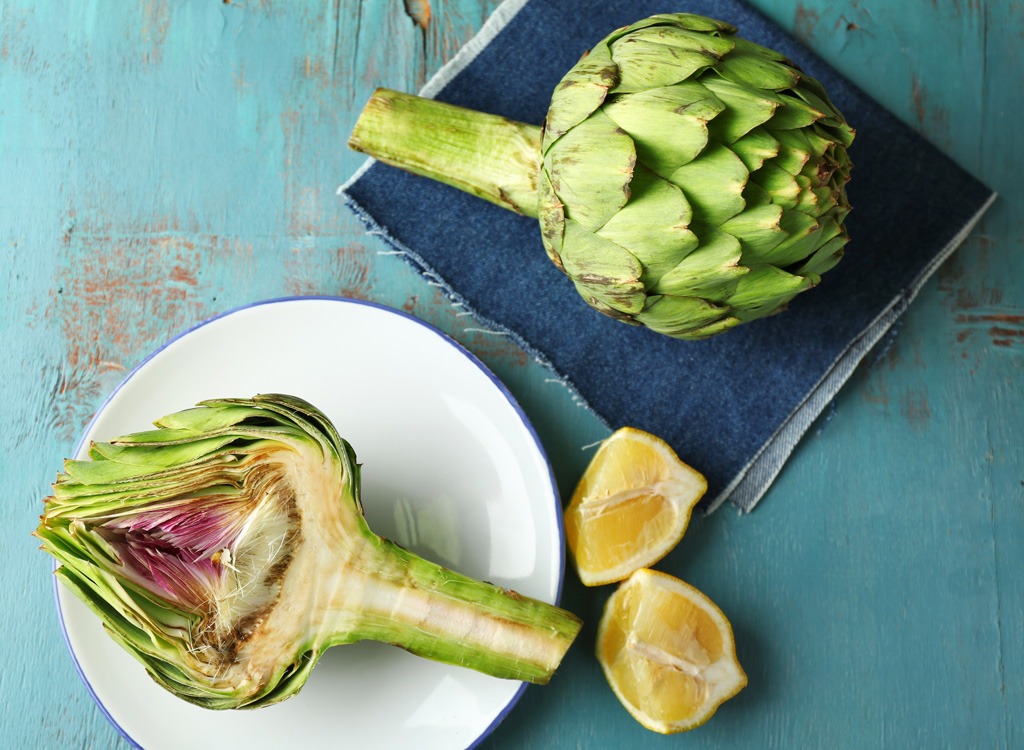
Beans, the magical fruit right?! We’ve learned from childhood that certain foods are prone to giving us unwanted bloat and indigestion. Does your diet commonly include any of the following: artichoke, garlic, cabbage, Brussels sprouts, or whole grains? All of these foods contain a type of carbohydrate called a fructo-oligosaccharide, which our bodies don’t have the enzyme to breakdown. This, therefore, causes fermentation by bacteria in our colon, which results in gas and bloating.
If you find yourself feeling uncomfortable after eating a beloved bowl of garlicky pasta, you may want to re-evaluate your tolerance to this entire category of foods. One solution to creating the perfectly seasoned dish at home is to substitute garlic itself for garlic-infused oil. You get the same great taste without the unwanted bloat.
It’s your time of the month.

To all the strong women out there—we see you and we appreciate you. If you’re a female who regularly gets her period, you’ve most definitely felt the wrath of the bloat, as over 90 percent of women report this symptom with monthly menstruation, according to the Office of Women’s Health. While there isn’t much of a remedy for this type of bloat beyond waiting it out, ensuring you are well hydrated, eating regular meals, and avoiding binges on sugary sweets, fatty food, and caffeine will help you feel better during your lowest of lows.
You’re drinking beverages through a straw.
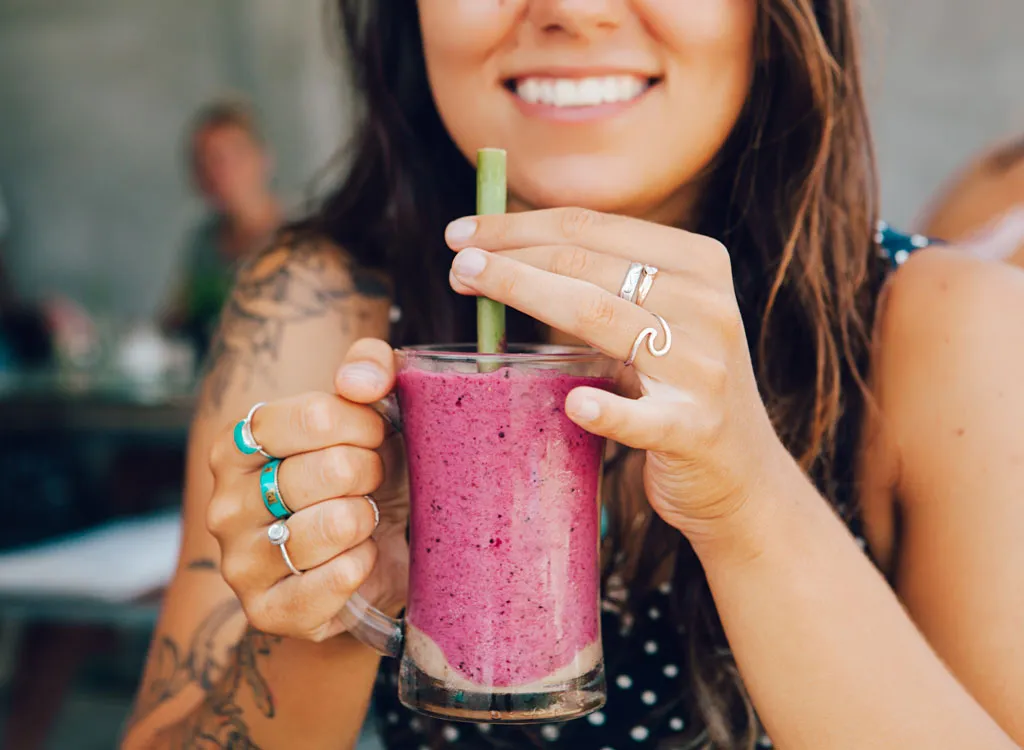
Though you may be saving mother nature with your reusable straw, you might also be exacerbating your daily bloat. According to the International Foundation for Gastrointestinal Disorders, swallowed air can contribute to gas. And it can be caused by several different factors, including drinking from a straw, eating too fast, chewing gum, or sucking on hard candies. Just as a party balloon is blown up with air, so is your stomach when too much air is trapped, causing that about-to-pop sensation. Try adjusting your routine away from these habits to see if symptoms go away.
You have fructose malabsorption.
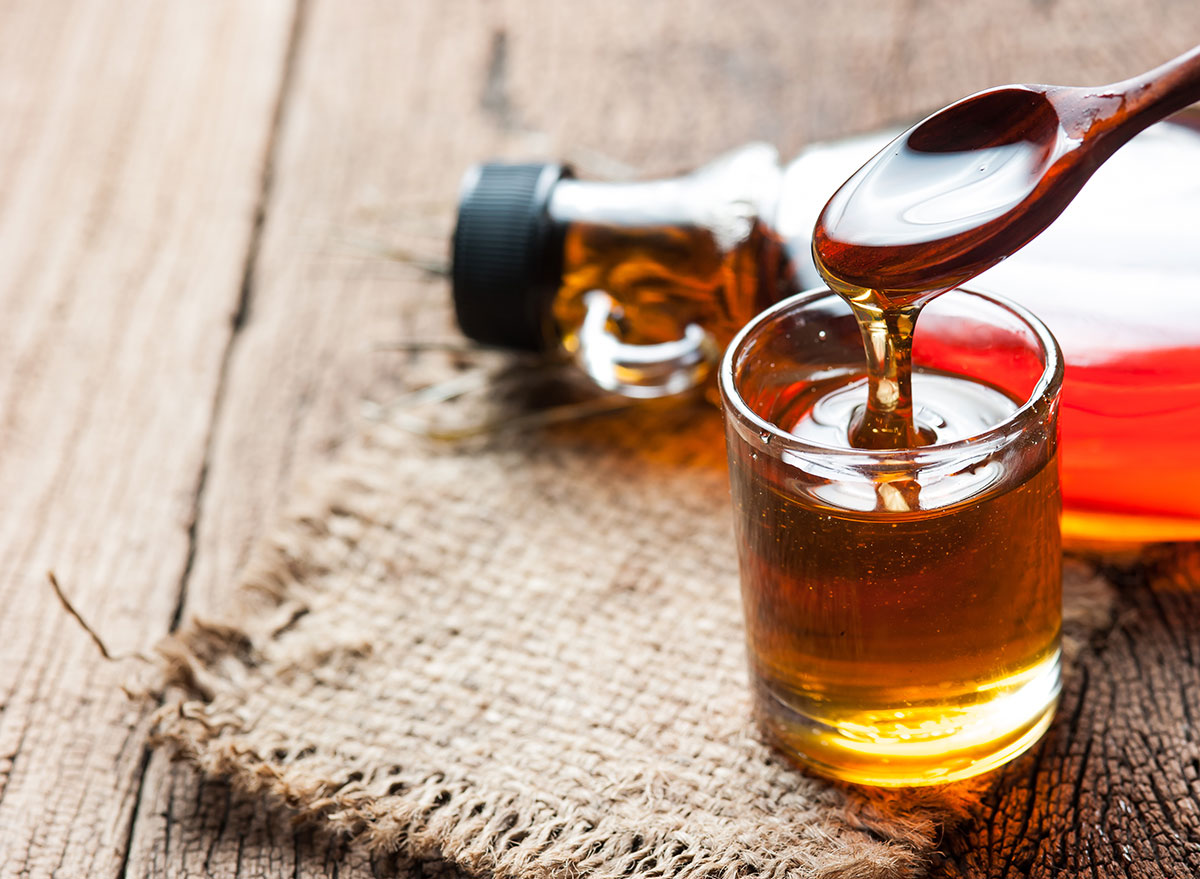
Next time you’re making Saturday morning pancakes, skip the Aunt Jemima syrup if you are bloated as a result of fructose malabsorption. This condition is diagnosed via a breath test ordered by your GI physician and is one that causes symptoms of bloating, diarrhea, and abdominal pain upon consumption of the sugar fructose. This is commonly found in honey, corn syrups, and some fruit. Fructose relies on the activity of special sugar transporters to be digested, and while most people experience no symptoms upon eating it, about 30-40 percent of people have problems. The solution to this type of bloat is to evaluate your diet with the help of a GI specialized registered dietitian for sources of excess fructose. A bloat-free lifestyle could be as simple as cutting back on your juice! Now that you know the root of your bloating problems, you can ease the symptoms by replacing the bad foods with these 15 Best (and Instant) Anti-Bloating Foods.
